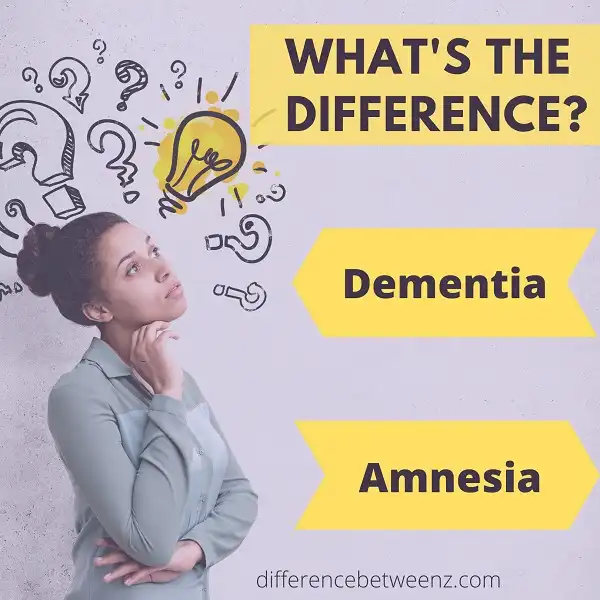Dementia and amnesia are two different conditions that can affect the brain. Dementia is a group of symptoms that affect memory, thinking, and behavior, while amnesia is a condition that results in memory loss. While dementia and amnesia both involve memory loss, there are some key differences between the two conditions. In this post, we will take a closer look at these differences, as well as how they are treated.
What is Dementia?
Dementia is a broad term used to describe a decline in mental ability severe enough to interfere with daily life. Memory loss is the most well-known symptom of dementia, but the condition can also cause problems with language, decision-making, and judgment. Dementia is typically diagnosed in older adults, but it is not a normal part of aging. There is no one cause of dementia, but the condition is often associated with degenerative diseases like Alzheimer’s and Parkinson’s. In some cases, dementia can be caused by head injuries or strokes. There is no cure for dementia, but treatments are available to help manage symptoms and improve quality of life.
What is Amnesia?
Amnesia is a type of memory loss in which a person is unable to remember certain information. It can be caused by psychological factors, such as trauma or stress, or by physical factors, such as head injury or disease. There are two main types of amnesia: retrograde amnesia and anterograde amnesia. Retrograde amnesia is the inability to remember events that occurred before the onset of amnesia.
Anterograde amnesia is the inability to form new memories after the onset of amnesia. Amnesia can be temporary or permanent, depending on the underlying cause. Treatment typically focuses on addressing the underlying cause, if possible. In some cases, therapies, such as cognitive rehabilitation, can help a person cope with memory loss.
Difference between Dementia and Amnesia
Dementia and Amnesia are often confused because they both involve memory loss. However, there are some important differences between the two conditions. Dementia is a general term used to describe a decline in cognitive abilities, while amnesia is specifically related to memory loss. Dementia can cause a variety of symptoms, including problems with language, decision-making, and motor skills. Amnesia, on the other hand, typically results in difficulty remembering specific information or events.
Additionally, amnesia can be caused by head injuries, psychological trauma, or disease, while dementia is usually associated with aging or degenerative neurological conditions. While both dementia and amnesia can be frustrating and debilitating, understanding the difference between the two can help to ensure that you receive the appropriate diagnosis and treatment.
Conclusion
While dementia and amnesia are often confused, they are two very different conditions. Dementia is a broad category that includes many different diseases which impact memory, thinking, and behavior. Amnesia, on the other hand, is a condition caused by damage to the brain which results in difficulty forming new memories or retrieving old ones. If you suspect someone you know may be suffering from dementia, it’s important to seek medical help as soon as possible. Early diagnosis and treatment can make a big difference in the quality of life of someone with dementia.


